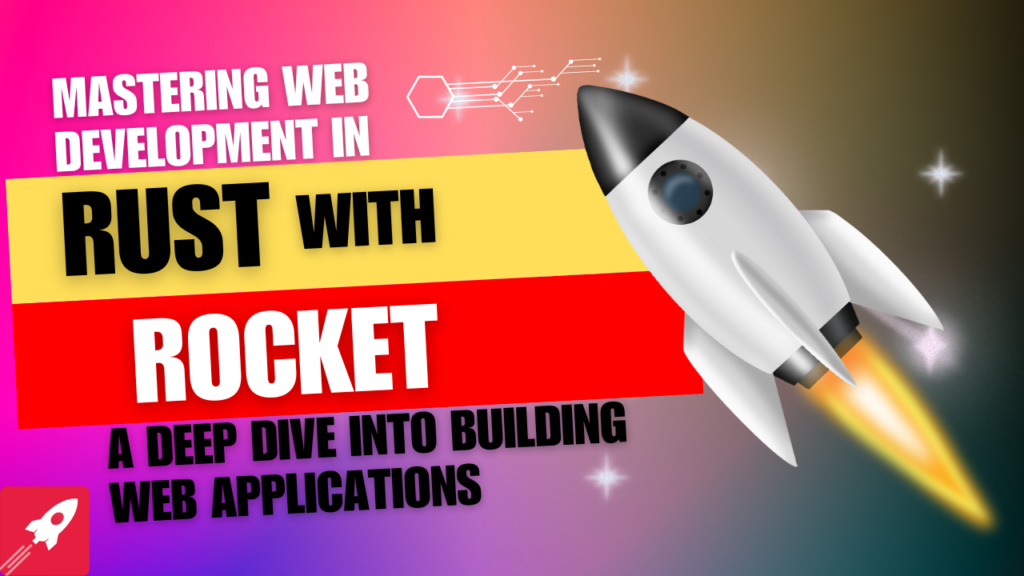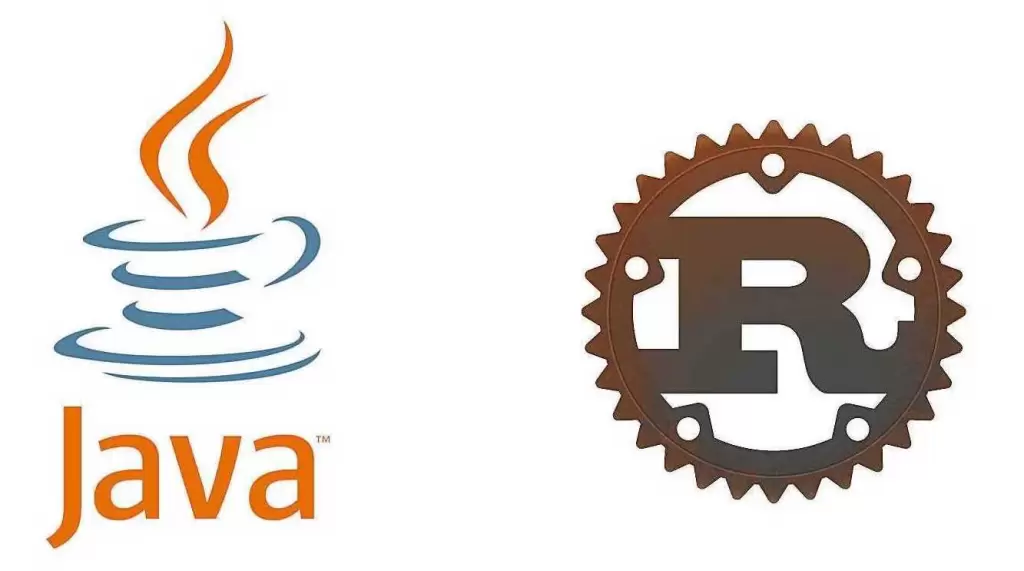Dive into the captivating world of web development with Rocket, the high-performance web framework for Rust. Unleash the power of Rust’s performance and safety, combined with Rocket’s speed and flexibility. This deep-dive guide will take you from setup to user authentication, exploring routes, state management, and database interactions. Get ready to embark on an exciting journey into the realm of Rocket and revolutionize your web development skills. Let’s begin!
What is Rocket? A Deep Dive into Rust’s Web Framework

Rocket is an outstanding web framework for the Rust programming language designed to make the process of writing fast, secure, and reliable web applications achievable and intuitive. Rocket’s philosophy is centered around several key principles that make it stand out among other web frameworks. Let’s take a detailed look at these features:
1. Ease of Use: Rocket’s innovative use of macros and annotations makes setting up routes and handlers a breeze. Rocket’s code is clean, easy to understand, and quick to write. The framework eliminates boilerplate code, allowing developers to focus on the application’s core logic. This boosts productivity and shortens the time it takes to get a web application up and running.
2. Type Safety: One of the standout features of Rocket is its leveraging of Rust’s powerful type system to prevent bugs and ensure program correctness at compile-time. This means many common errors, such as accessing non-existent variables or using incompatible types, are caught during the compilation process long before the code is ever run. This is a huge win for application reliability and developer peace of mind.
3. Flexibility: Rocket doesn’t force a particular structure or pattern on your applications. It is designed to provide a solid foundation and then get out of your way, allowing you to structure and handle requests in the way that best fits your project’s needs. Whether you’re building a small microservice or a large, complex web application, Rocket provides the flexibility you need to make it happen.
4. Efficiency and Performance: Rocket applications are fast, really fast. Rocket brings the speed and resource efficiency for which Rust is known to the realm of web development. With minimal overhead, Rocket applications deliver blazing-fast performance, making it a great choice for high-traffic web services where speed and resource utilization matter.
5. Comprehensive Documentation: Rocket’s commitment to the developer experience is evident in its extensive guide and detailed API documentation. These resources are not just technical manuals; they are treasure troves of practical advice, best practices, and in-depth explanations that are invaluable for both beginners and experienced developers. Whether you’re looking for a quick start guide or a deep dive into Rocket’s inner workings, the official Rocket documentation has you covered.
Setting up your Rocket Environment
Getting started with Rocket involves a few steps. First, ensure you have Rust’s package manager, Cargo, installed. This comes as part of the Rust installation. You can check if it’s installed by running cargo --version in your terminal.
To include Rocket in your project, add it to your Cargo.toml file:
[dependencies]
rocket = "0.4.11"After adding Rocket to your dependencies, import it into your main.rs file:
#![feature(proc_macro_hygiene, decl_macro)]
#[macro_use] extern crate rocket;This will enable Rocket’s features in your project.
Creating Routes
Routing is the process of mapping network requests to specific functions in your application. Rocket’s approach to routing is intuitive and type-safe. Each route in Rocket is associated with a function, which is executed when a client requests the route. Rocket routes are declared with route attribute macros (#[get], #[post], etc.) that generate code to handle the routing for us.
Here’s an example of a simple route:
#[get("/")]
fn index() -> &'static str {
"Hello, world!"
}
fn main() {
rocket::ignite().mount("/", routes![index]).launch();
}In the above example, the #[get("/")] attribute tells Rocket to route GET requests to the root (“/”) of the application to the index function. The index function returns a static string “Hello, world!”.
Managing Request Data
Rocket provides several mechanisms for managing request data, including query parameters, dynamic path segments, and request guards. For instance, to access query parameters, you can use Rocket’s request guards:
#[get("/hello?<name>")]
fn hello(name: Option<String>) -> String {
match name {
Some(name) => format!("Hello, {}!", name),
None => "Hello, Stranger!".to_string(),
}
}In this example, name is a query parameter. When a GET request is made to “/hello?name=John”, the hello function will return “Hello, John!”. If no name is provided, it will return “Hello, Stranger!”.
Rocket’s request guards are flexible and can manage various kinds of request data. For example, you can use dynamic path segments:
#[get("/item/<id>")]
fn item(id: usize) -> String {
format!("Requested item with id: {}", id)
}In this example, id is a dynamic path segment. When a GET request is made to “/item/42”, the item function will return “Requested item with id: 42”.
Form Processing
Rocket also simplifies form processing with built-in form guards:
use rocket::request::Form;
#[derive(FromForm)]
struct Task {
description: String,
completed: bool,
}
#[post("/", data = "<task_form>")]
fn new(task_form: Form<Task>) -> String {
let task: Task = task_form.into_inner(); // convert form data into Task instance
format!("New task added: {}", task.description)
}In this example, Task is a form data struct. When a POST request is made to the root (“/”) with form data, the new function will return “New task added: ” followed by the task description.
Interacting with Databases
Rocket provides support for several databases through the rocket_contrib Crate. This feature, combined with the Diesel ORM, simplifies database operations. Here’s how to connect to a PostgreSQL database:
[dependencies]
rocket_contrib = { version = "0.4.10", features = ["diesel_postgres_pool"] }use rocket_contrib::databases::diesel;
#[database("postgres_db")]
struct MyDatabase(diesel::PgConnection);
#[get("/")]
fn index(conn: MyDatabase) -> &'static str {
// Use `conn` to interact with the database.
"Hello, world!"
}
fn main() {
rocket::ignite()
.attach(MyDatabase::fairing())
.mount("/", routes![index])
.launch();
}In this example, we define MyDatabase as a PostgreSQL database by using the #[database] attribute and specify the connection parameters in Rocket’s configuration file. We can then use MyDatabase as a request guard in any route handler.
Managing State with Rocket
Rocket provides excellent support for managing application state. This can be useful for sharing resources between routes, such as database connections, configuration, or any other arbitrary data:
use rocket::State;
use std::sync::Mutex;
struct Counter {
count: Mutex<i32>,
}
#[get("/count")]
fn count(counter: State<'_, Counter>) -> String {
let mut count = counter.count.lock().unwrap();
*count += 1;
format!("Number of visits: {}", count)
}
fn main() {
let counter = Counter {
count: Mutex::new(0),
};
rocket::ignite()
.manage(counter)
.mount("/", routes![count])
.launch();
}In this example, we’re creating a simple visit counter. Each time the /count route is visited, the counter is incremented.
User Authentication
User authentication is a critical aspect of many web applications. Rocket makes it easy to manage user authentication with the help of request guards. Here’s a simple example of a user authentication system:
use rocket::request::{self, FromRequest, Request};
use rocket::Outcome;
struct User(usize);
impl<'a, 'r> FromRequest<'a, 'r> for User {
type Error = std::convert::Infallible;
fn from_request(request: &'a Request<'r>) -> request::Outcome<User, Self::Error> {
let user_id = request.cookies()
.get_private("user_id")
.and_then(|cookie| cookie.value().parse().ok())
.unwrap_or(0);
if user_id != 0 {
Outcome::Success(User(user_id))
} else {
Outcome::Forward(())
}
}
}In this example, User is a request guard that tries to retrieve a user_id from private cookies. If a user_id is found, an authenticated User is returned. If no user_id is found, the request is forwarded for further processing.
Error Handling
Rocket provides extensive support for error handling. Each Rocket route can return a Result type. If an Err is returned, Rocket will call the appropriate error catcher.
Here’s an example of how you can handle errors in Rocket:
use rocket::Request;
use rocket::http::Status;
use rocket::response::status;
#[catch(404)]
fn not_found(req: &Request) -> String {
format!("Sorry, '{}' is not a valid path.", req.uri())
}
#[get("/item/<id>")]
fn item(id: usize) -> Result<String, status::NotFound<String>> {
if let Some(item) = db::find_item(id) { // assuming db::find_item is a function that queries your database
Ok(format!("Found item: {}", item))
} else {
Err(status::NotFound("Item not found".to_string()))
}
}
fn main() {
rocket::ignite()
.mount("/", routes![item])
.register(catchers![not_found])
.launch();
}In this example, if the item route fails to find an item, it returns a NotFound error. This error is then caught by the not_found catcher, which returns a custom error message.
Conclusion
Building a web application with Rocket involves many steps and components, and this guide has provided an in-depth look at each step of the process. By understanding Rocket’s approach to routing, request handling, state management, database interaction, and user authentication, you’ve gained the skills necessary to build robust, high-performance web applications in Rust. As you continue to work with Rocket, the official Rocket guide and API documentation will be invaluable resources. Happy Rusting!




